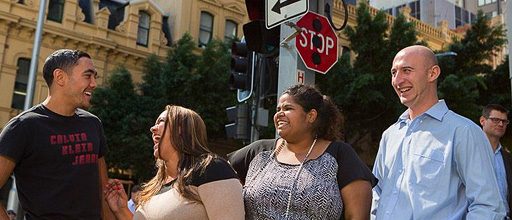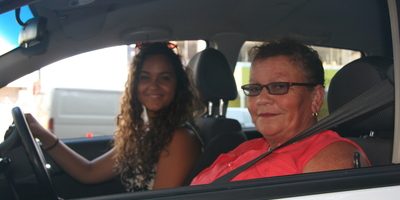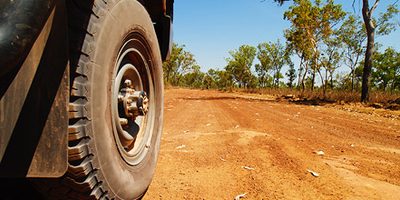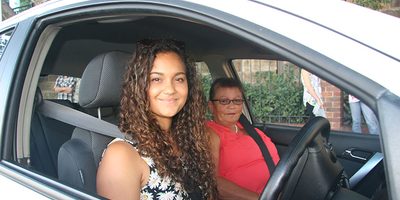
Driving Change: new initiative to unlock doors for young Aboriginal people
A new program will provide extra support to help young Aboriginal people overcome barriers to obtaining a driver licence, in an initiative to enhance opportunities for access to employment, education and health services.
The Driving Change program was launched today at the Redfern Community Centre by The George Institute for Global Health, with funding partners AstraZeneca and the New South Wales Government.
Driving Change is a unique initiative to address a complex community issue. It will fund positions for local Driver Licensing Champions, create mentoring opportunities and provide links to existing services and information.
Professor Rebecca Ivers, Program Lead, The George Institute and The University of Sydney, said low rates of licensing had a sustained negative impact on the community.
“If you have limited means to get to work, uni or TAFE or other health and support services, it’s much harder to make the most of opportunities available,” said Professor Ivers.
“Driving Change is a community-led program that helps break through the barriers that some young Aboriginal people have to getting a licence, such as access to identification documents, limited availability to supervising drivers or cars, and prohibitive lesson costs.”
Youth Worker and the first appointed Driver Licensing Champion in Redfern, Molisa Carney, said that many local young people would benefit from the initiative.
“Better access to a driver licence will bring many benefits to young Aboriginal people in the community,” said Ms Carney.
“As a youth worker and a mother, I can see that this will not only help open doors and improve independence for our young people, it will also help them get a better understanding of how important road safety is.”
Australian data shows that Aboriginal and Torres Strait Islander people are almost 1.5 times more likely to be seriously injured, and almost three times as likely to die, from road traffic injury compared with other Australians1.
NSW Minister for Citizenship and Communities and Aboriginal Affairs, Victor Dominello, said the initiative was an important step in addressing the life expectancy gap.
“Road traffic injuries are one of the top 10 contributors to the life expectancy gap between Aboriginal and non-Aboriginal Australians.
“As well as assisting young people to gain driver licenses this initiative will help increase their confidence, giving them a better chance at a job.
“Driving Change will empower the local community to make real change,” Mr Dominello said.
A review conducted for NSW Health found initiatives adopting community-owned models of development and implementation delivered greater success.
NSW Minister for Roads and Ports, Duncan Gay, also backed the Driving Change strategy.
“Investing in community-led programs, particularly those harnessing existing services and resources will result in effective and sustainable improvements to make our roads a safer place,” said Mr Gay.
Mark Fladrich, Managing Director of AstraZeneca Australia and New Zealand said that Driving Change represents a unique way to tackle a community problem.
“Driving Change is about building capacity in local communities to create the conditions that result in safe and licensed young drivers. AstraZeneca is proud to partner with the NSW Government and The George Institute as major supporters of this program.”
Redfern, Shellharbour and Griffith are the first locations for the program, which are being funded by the AstraZeneca Young Health Programme.
Minister Dominello today announced funding on behalf of Transport for NSW for an additional three communities.
Visit www.drivingchange.com.au for more information.
1. Henley G, Harrison J: Injury of Aboriginal and Torres Strait Islander people due to transport, 2003-04 to 2007-08. In. Canberra: Australian Institute of Health and Welfare; 2010.
2. Senserrick T, Hinchcliff R, Ivers R, Martiniuk A, Boufous S, Clapham K: Aboriginal injury prevention projects. An evidence check rapid review brokered by the Sax Institute (http://www.saxinstituter.org.au) for New South Wales Health. Sydney NSW: Sax Institute; 2010.






